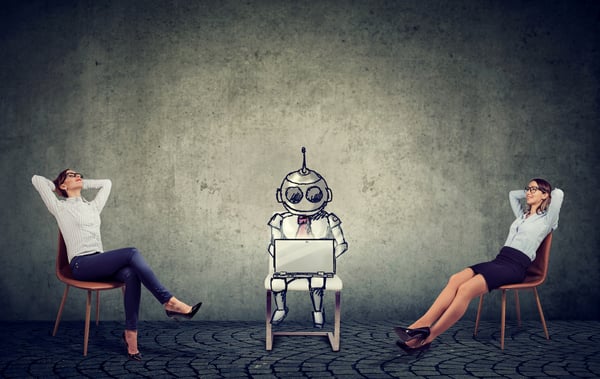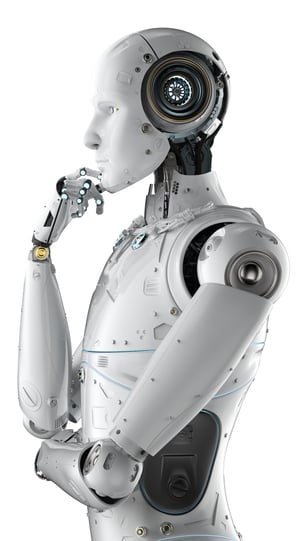Thanks to increasingly more efficient machine learning algorithms, artificial intelligence (AI) is fast becoming a reality in every part of our world. Marketing is certainly not excluded, and AI can streamline processes at a time of immense data overload. It can, for example, sift through vast quantities of data, aggregating it and deliver curated reports in seconds. So, what are the odds of your job being taken over by a robot in the near future?

It is believed that by the mid-2030s, up to 30% of jobs could be automatable, with slightly more men being affected in the long run as autonomous vehicles and other machines replace many manual tasks where their share of employment is higher, according to PWC. Another study conducted by by researchers at Oxford University and Deloitte showed that about 35% of current jobs in the UK are at high risk of computerisation over the following 20 years. Curious to see whether yours is on the list? Check out the BBC where you can find out the likelihood that your job will be replaced by automation.
Strange as this may be – and unlikely as it may sound – it is not only physical jobs that will be replaced by automation and digitalization. Jobs like telemarketing and bank work, which do not require a high degree of social intelligence will also be at risk of being replaced with automated systems.
 Take IBM’s Watson for instance – the computer that thinks – which is different from Siri or Alexa because it learns from requests and questions. Watson has the ability to process language commands and respond to them in a human-like manner, either verbally or via text. Watson is AI because it understands, thinks, learns, and interacts.
Take IBM’s Watson for instance – the computer that thinks – which is different from Siri or Alexa because it learns from requests and questions. Watson has the ability to process language commands and respond to them in a human-like manner, either verbally or via text. Watson is AI because it understands, thinks, learns, and interacts.
A future ‘Watson’ will be able to help marketers offer even more niche and personalised content, potentially addressing each user individually. Watsons of the future will be able to not only answer questions based on key words, but they will do so with wits and humour; they will be capable of understanding complex phrases and metaphorical meanings and even learn during conversations.
But even before Watson starts telling jokes by the water cooler, present AI can analyse visitor interactions, keep tabs on their interests and, after analysing all of this data, produce content that is in demand. Of course, at the moment there are limitations to the ‘creativity’ of such programs, but it is believed that in the next decade ‘sentient’ AI will become commonplace.
At present, automated computer operations include bots that post on social media. On Twitter for instance you can schedule ‘thank you for following us’ messages that go to your newest followers. Similar posts can already be automated on Facebook or LinkedIn. Although these are by no means AI, soon they will be conducted by more ‘intelligent’ programs that will be able to send personalised messages after analysing the users’ profiles.
But automation, AI and robots need not be scary! Instead, we invite marketeers and companies alike to embrace these changes and include them in their operational processes. Adapting to new technologies will happen gradually so gaining awareness of future trends and innovation early on pays off. This is why we have put together an eBook on what marketing trends we can expect in 2019 and the years to come.
